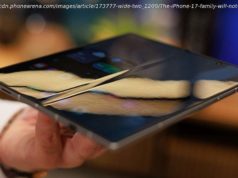For a layperson, the mention of blockchain can bring to mind complex technological tools, immutable contracts, and secure transactions. It is essentially a digitally distributed database made up of a series of ordered records and blocks. These blocks are securely linked using cryptography and contain a cryptographic hash of the previous block, a timestamp, and transaction data.
Blockchain works similarly, providing a decentralised and transparent ledger where transactions are securely recorded. It adds a security layer, ensuring that once a transaction is recorded, it cannot be altered, fostering trust and integrity in the system. This network is maintained by nodes—individual computers that validate and store transaction data. These nodes work together to run the blockchain, verifying transactions and ensuring the network’s security and reliability.In essence, blockchain technology eliminates the need for intermediaries, to verify financial information and perform major data analyses. Transactions are verified via a distributed computer network, making them quicker, cost-effective, and offering an additional security level. Two decades ago, the Internet democratised access to information. Today, blockchain is shaping the next evolution of the Internet by prioritising trust and seamless value exchange. It is not a new tech marvel by any means, with Satoshi Nakamoto releasing the first white paper outlining the Bitcoin blockchain model in 2008. Today, the blockchain industry’s market size (excluding crypto market size) exceeds $27 billion, with reports suggesting that it could reach $ 1,879.30 billion by 2034.This indicates one important aspect: Blockchain technology is here to stay, and will find use cases in multiple applications beyond crypto.
Going Beyond Value Addition
As a tech platform, blockchain is used across multiple sectors, including banking and finance, real estate, gaming, supply chain logistics, and healthcare. Inefficient supply chains often lead to higher costs and wastage of goods. Here, blockchain increases transparency in tracking goods while reducing fraud and redundancies. A notable industry use case is the IBM Food Trust blockchain, which enables food suppliers to track the journey of food from farm to fork, improving food safety and minimising losses caused by contamination.Another area where blockchain can make a difference is addressing leakages and issues in healthcare. In many parts of the developing world, accessing complete medical records is a challenge, as digital records are often unavailable, paper trails go missing, and record management remains inefficient.






